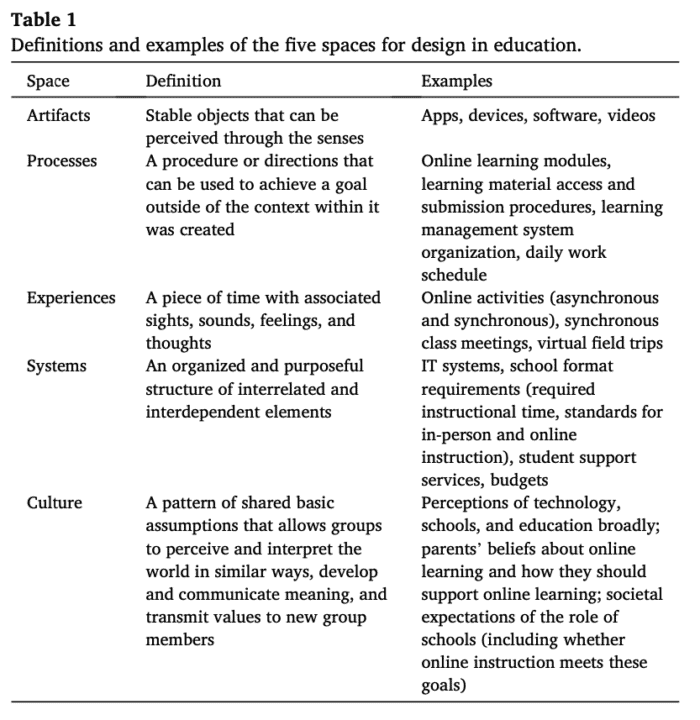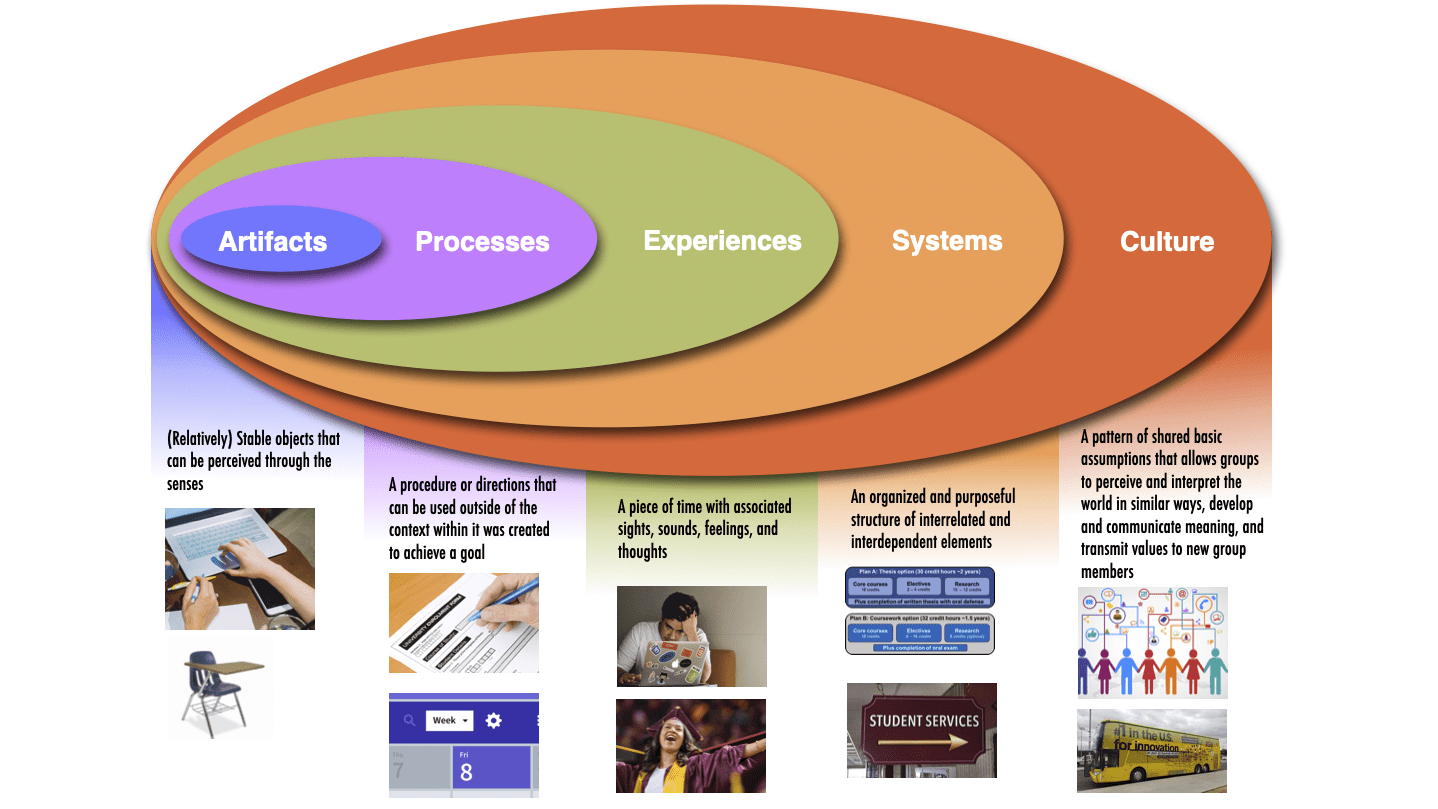Melissa Warr and I were recently asked to write a afterword to a special issue of the journal Computers in Human Behavior. The focus of the special issue was on the kinds of knowledge, skills and attitudes (KSA) teachers need to successfully integrate technology in their teaching. In our piece, we argued for a expanding the kinds of knowledge teachers have to include broader systemic and cultural knowledge. Our argument is framed within The 5 spaces for design in education framework. This framework provides a tool to think with—emphasizing a systems perspective on what teachers design. Consider, for instance:
… a teacher seeking to try out a new technology to teach and assess scientific understanding. This lesson (and assessment) do not exist in isolation, merely shaped by the teacher’s TPACK. They exist within broader systemic and cultural contexts and discourses, which may include (but surely are not limited to) teacher performance evaluation systems, school rankings, current budgetary constraints, state-level policies and standards, and more. A teacher who understands how these systemic factors work can utilize them intelligently to set herself and her students for success. We do not mean that teachers need to become expert administrators or policy makers. Rather, if teachers are cognizant of these issues, sensitive to constraints, and open to possibilities, they can leverage apparent constraints into recipes for success.
More detail on the 5 spaces is given in the table below.

The five spaces framework allows us to also understand processes, systems and culture that may work against the best intentions of educators. It helps us recognize that sometimes the barriers may be outside of the classroom context, and successfully navigating these barriers may require knowledge of systems and culture that are often not discussed in teacher education or professional development programs. An under- standing of the broader systems and culture within which classrooms operate would allow teachers to acquire aspects of KSA that help them integrate technology in ways that are truly valuable for learners.
Mishra, P., Warr, M. (2021). Contextualizing TPACK within systems and culture. Computers in Human Behavior. 117. https://doi.org/10.1016/j.chb.2020.106673





Great thanks for you dear professor. I am so glad that I had this great opportunity for me to download your great works. I used a number of your great articles for writing my thesis. And by chance on Research gate I found one your great articles about TPACK and I checked your profile and started following you and realized that all works are permitted to be downloaded from the website. It made day to be frank. In my country I did not get the chance to learn how to conduct research that is why it’s so consuming and exhausting. I am doing my best to cope with the current needs for being successful teacher of English.
Thanks over and over again for providing us with the chance of getting benefits of your knowledge.
My sincere thanks
Najma